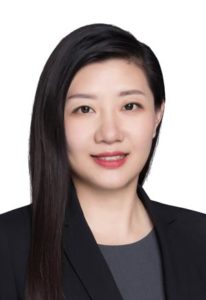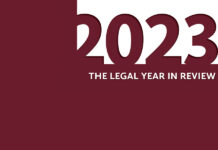Since its launch in June this year, the Shanghai Stock Exchange (SSE) Sci-tech Innovation Board (Star) has received much attention from the public. Overseas stock exchange sectors that Star could use as benchmarks include techMARK and techMARK mediscience, high-tech trading indexes of the London Stock Exchange (LSE) (collectively “techMARK”) and Nasdaq, the National Association of Securities Dealers Automated Quotations System in the US.
The main market of LSE is divided into four segments, namely premium segment, standard segment, specialist fund segment and high-growth segment. techMark, a submarket under the premium segment as well as the standard segment, was launched by the LSE in 1999 for forefront scientific and technical companies devoted to innovative technologies, and designed to create more financing opportunities for companies focusing on technological innovations. The business models of the companies listed on techMARK feature high-tech innovation and large amounts of investments in research and development (R&D) projects.

Partner
Dentons
Nasdaq is a platform founded by the National Association of Securities Dealers on 8 February 1971, mainly for companies from biological, pharmaceutical, sci-tech and other industries. Nasdaq has three different market tiers including Nasdaq Global Select Market, Nasdaq Global Market and Nasdaq Capital Market.
Participants in listing. Similar to the purpose of Star to promote scientific and technological innovation, companies listed on techMARK are allowed to carry out commercial operations in any industry. They have a common feature, that is, they shall be committed to innovation and R&D. Similarly, companies listed on Nasdaq mainly include innovative, growth-oriented and mobile internet companies.
Market entry regulation. Star adopts the registration-based IPO mechanism by referring to certain experience and systems of overseas boards of the same kind. A company to be listed on Star is subject to an approval by the SSE and registration with the China Securities Regulatory Commission. As for listing on techMARK, approvals of listing and issuance are separated. A company applying for listing on the main market of the LSE shall not publicly offer its securities until the UK Listing Authority (UKLA) of the Financial Services Authority (FSA) has examined its listing documents and granted an approval according to the listing rules and prospectus rules.
Such listing approval process requires that a company applying for listing shall disclose its true information and meet a series of substantive requirements, including its qualification and business affairs (the issuer shall have an operational history, which shall be three years in general), qualifications of its management (its board members and executive officers shall include executives in charge of main businesses in the past three years), sound corporate capital structure (including auditing of financial statements according to international accounting standards or UK accounting standards), sufficiency and authenticity of disclosure, and the good prospect of the industry in which the company operates. If a company’s shares are issued on the main market of the LSE, generally at least 25% of such shares shall be held in public hands.
Meanwhile, apart from the substantive examination by the listing management department of the application materials of the company applying for listing, the trading of its shares on the LSE is subject to LSE approval. The two approval procedures could be conducted simultaneously.
Unlike the UK, a registration system has been adopted for listing on Nasdaq in the US. The US Securities and Exchange Commission (SEC) will review the completeness and authenticity of the information disclosed by a company applying for listing mainly according to the “disclosure principle”. The disclosure principle is also reflected in the US Securities Act of 1933 and the US Securities Exchange Act of 1934. A company applying for listing shall prepare declaration documents by mainly following the two laws and instructions from the SEC, and with the assistance of legal counsel and financial advisers, the company will determine which information shall be disclosed, and how they shall be disclosed according to requirements of laws.
Under the disclosure requirement, the SEC pays more attention to whether a company applying for listing has disclosed all information that investors need to know. The SEC classifies and reviews the application of a company applying for listing by the industry in which it operates. It has 11 industry-based review offices covering the following industries: health and insurance, consumer goods, information technology and services, transportation and leisure, real estate and commodities, beverages, clothing and mining, electronic products and machinery, communications, financial services, and natural resources.
Normally, a company listed on Nasdaq needs to submit form S-1 or form F-1 to the SEC, and the SEC is entitled to issue several, and even up to a dozen, rounds of written questions to the company. The company shall answer all of the questions (including updating the financial statements in the filing forms) so that it can be considered to have made full disclosure.
Conclusions
Normally, to list on the overseas Sci-tech Innovation Board, a company can choose direct public offering of shares or listing through issuing depository receipts. Whichever model of listing is adopted, a domestic China enterprise shall first realize that Star, overseas techMARK or Nasdaq all seek to encourage and incubate high-tech enterprises to make innovation continuously. However, compliance requirements, listing costs, investors and market makers vary with different listing locations as selected by various companies. Therefore, a company should cautiously select a suitable listing location and a suitable listing and trading platform by considering its development and business models.
Willow Wei is a partner at Dentons

Dentons
15th/16th Floor, Shanghai Tower
501 Yincheng Road (M), Pudong New Area
Shanghai 200120, China
Tel: +86 21 5878 5888
Fax: +86 21 5878 6866
E-mail:
willow.wei@dentons.cn





















